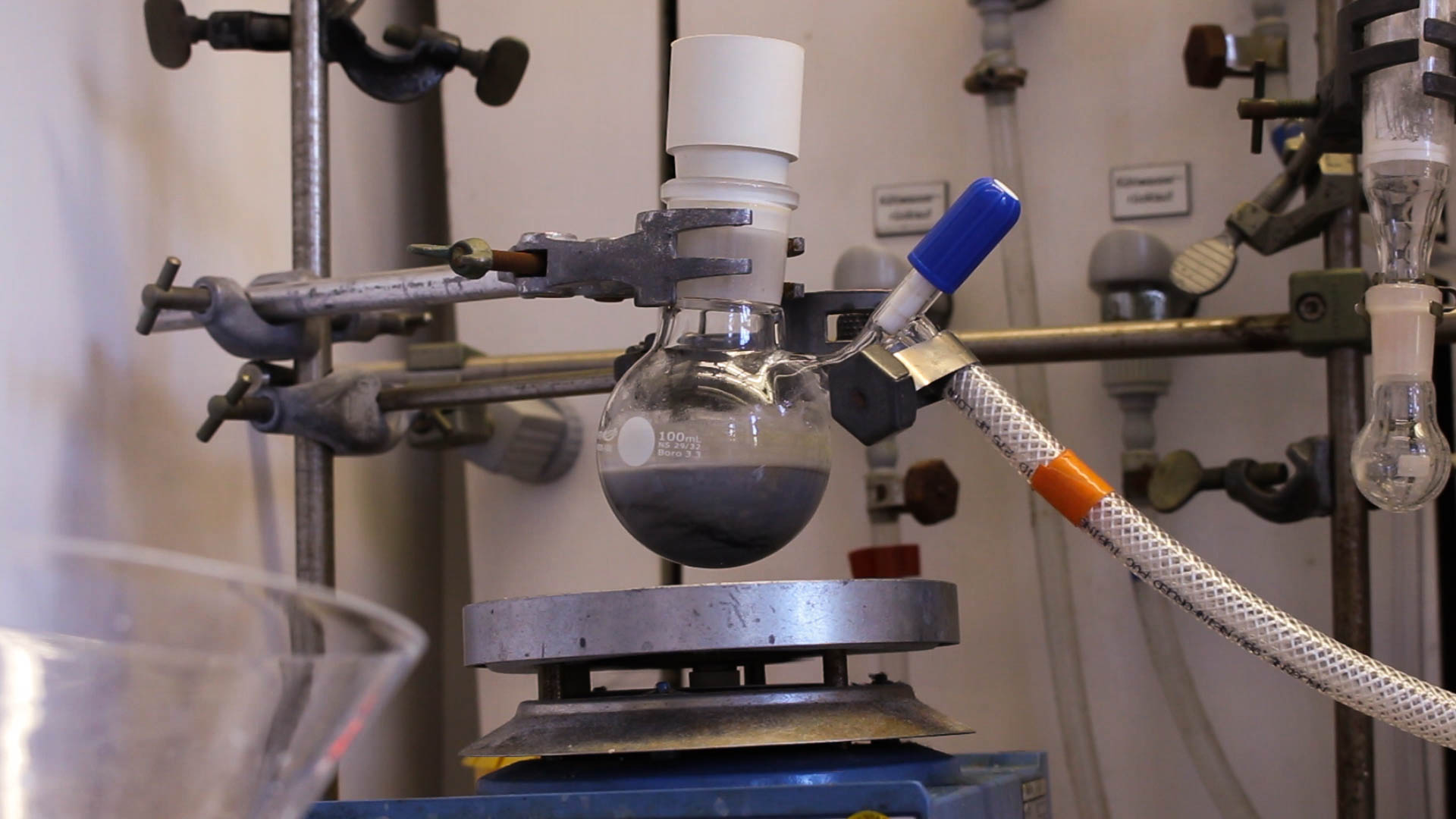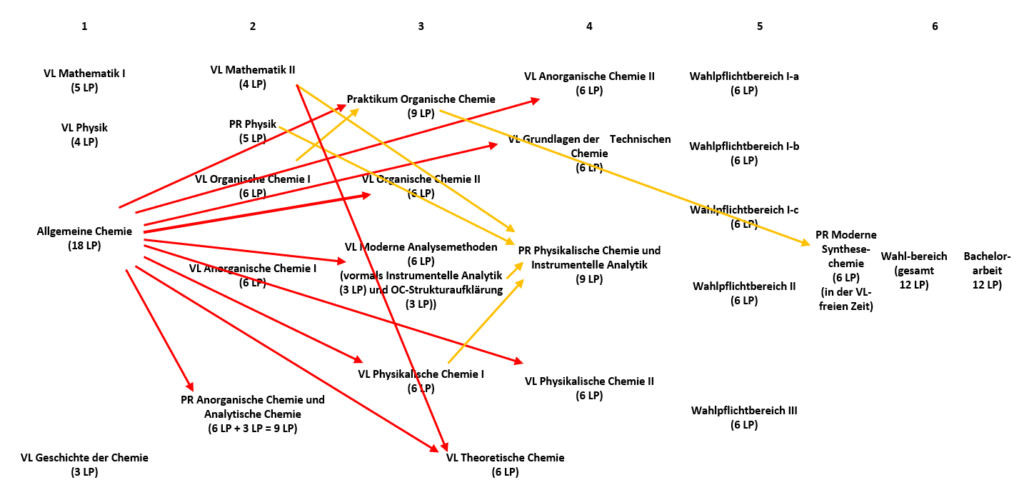
Zugangsvoraussetzungen für Module im Bachelor
Zugangsvoraussetzungen für Module im Bachelor
An article by Thomas Michael Humphrey
English
Barriers of entry are essentially the bane of a student’s existence at our institute. However, these are often necessary so that the professors can verify that you understand the material before you start handling dangerous materials. Before 2019, the amount of access requirements and modules you had to pass before taking part in later modules was pretty ridiculous. If you failed or couldn’t take part in an exam, you were often forced to extend your entire bachelor by an entire year. This case was very common and often left students feeling lost.
The new bachelor that was released in 2020 simplified things significantly, however barriers of entry for some modules is still there. This also includes the most important barrier of entry, which is “Allgemeine Chemie” (General Chemistry).
Below you will find a scheme for how the barriers of entry works in the new bachelor with a small description listed below.
Deutsch
Zugangsvoraussetzungen sind im Grunde sehr nervig für Studierende. Allerdings sind diese oft notwendig, damit die Professoren überprüfen können, ob man den Stoff versteht, bevor man mit gefährlichen Materialien hantiert. Vor 2019 war die Anzahl der Zugangsvoraussetzungen und Module, die man bestehen musste, bevor man an späteren Modulen teilnehmen konnte, sehr komplex. Wenn man durchfiel oder nicht an einer Prüfung teilnehmen konnte, war man oft gezwungen, seinen gesamten Bachelor um ein ganzes Jahr zu verlängern. Dies ist mehrfach passiert und führte oft dazu, dass sich die Studierenden verloren fühlten.
Der neue Bachelor, der 2020 eingeführt wurde, hat diese Situation etwas entschärft, aber die Zugangsbarriere für einige Module ist immer noch da. Dazu gehört auch die wichtigste Einstiegshürde, die Klausur der “Allgemeinen Chemie”.
Nachfolgend findest du ein Schema, wie die Zugangshürden im neuen Bachelor funktionieren. Weiter unten steht eine kleine Beschreibung.
As you can clearly see, “Allgemeine Chemie” is the trouble maker here. This is essentially the key to the rest of your studies. Without this module, you cannot take part in the anorganic and analytical labs in the second semester, nor any modules in the third semester.
Furthermore, you will see module requirements for some of the labs. You have to pass organic chemistry one to take part in the organic chem labs, which is then required to take part in the synthesis lab in the 5th semester. You will also need to pass mathematics II, physics lab and the physical chemistry I module to take part in the physical chemistry and instrumental analytics lab in the fourth semester.
The final barrier of entry, which is not listed in the diagram, is the synthetic lab for your bachelor thesis!
Make sure you understand what modules you need to pass if you have to make the choice between two exams!
Wie du deutlich sehen kannst, ist das Modul “Allgemeine Chemie” das größte Hindernis. Es ist im Wesentlichen der Schlüssel für den Rest deines Studiums. Ohne dieses Modul kannst du weder an den anorganischen und analytischen Laboren im zweiten Semester teilnehmen noch an den Modulen im dritten Semester.
Des Weiteren wirst du sehen, dass für einige der Labore Modulvoraussetzungen bestehen. Du musst Organische Chemie eins bestehen, um an den organischen Chemielaboren teilnehmen zu können, was wiederum Voraussetzung für die Teilnahme am Syntheselabor im 5. Semester ist. Außerdem musst du Mathematik II, das Physiklabor und das Modul Physikalische Chemie I bestehen, um am physikalisch-chemischen und instrumentellen Analytik Labor im vierten Semester teilzunehmen.
Die letzte Einstiegshürde, die nicht im Diagramm aufgeführt ist, ist das Syntheselabor für deine Bachelorarbeit!
Stelle sicher, dass du verstehst, welche Module du bestehen musst, wenn du die Wahl zwischen zwei Prüfungen treffen musst!




No Comments